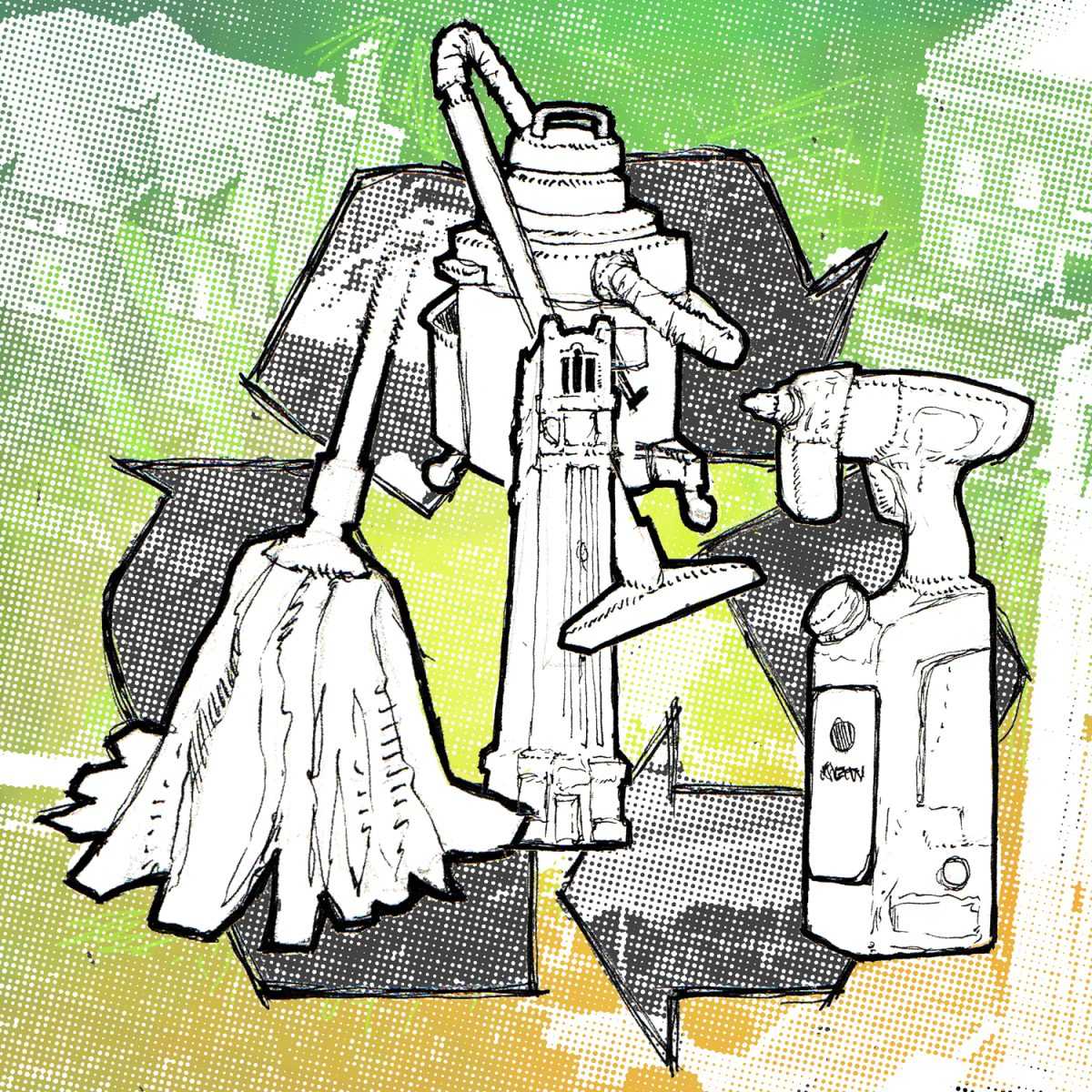For years, N.C. State’s housekeeping equipment and products were stuck in the status quo — they were all heavy chemical-based cleaners and inefficient tools.
But about eight years ago, the University started to implement a program of greener housekeeping aimed at keeping their cleaning products more effective and environmentally friendly. As it has developed, the new products that housekeepers are using have helped to create a cleaner and healthier school environment.
Shirley Harris, the zone one housekeeping manager, has worked at N.C. State for twenty-five years. She and her staff of 16 housekeepers manage the upkeep of more than eleven buildings on North campus.
She recalls the old mops and buckets, strong-smelling chemicals and loud vacuums that did little more than spread dust around the buildings.
“With the old chemicals,” Harris said, “we spent a lot of time cleaning everything, but then we had to spend just as much time later removing the buildup from those cleaners.”
With the new concern for creating a healthier and more responsible campus, there has been a significant effort to update cleaning products and processes.
One of the most innovative new products is the Orbio water spray bottle. The cleaner uses a simple combination of water, salt and electricity and cleans nearly 99% of all germs.
This single, electrically-charged all-purpose cleaner can be used for almost any surface, according to Harris. Its applications include shampooing carpets, mopping, and cleaning windows, walls and furniture.
The result is a healthier school environment for the faculty, students and for our housekeepers as well.
“We have cleaner buildings,” Harris said, “and people don’t complain about the strong smells and such anymore.”
Housekeepers that had dermatological allergies to the old strong chemicals or who have asthma and dust allergies have benefited from the changes as well.
The new, quieter vacuums no longer blow dust around the buildings. The reduced noise allows the housekeepers to work during classes instead of rushing to finish everything early in the morning before classes start.
Many of the new and improved products are still being created. Harris said she doesn’t see the new technology reaching an innovative plateau in the near future. “We’re getting it as it comes out, and I think it’s probably going to continue to change,” Harris said.
The housekeepers put each new product through a rigorous test period to determine if it is effective. That test period can last as long as five months.
The sustainability office provides a list of the new products being used. Some of them are HEPA filtration vacuum systems, Green Seal cleaning products like a green stripper for the floors, microfiber mops, and recycled content paper products.
N.C. State’s program received the excellence in cleaning award from the Association of Physical Plant Administrators. The campus, overall, has the association’s APPA level II rating, the highest it can achieve.
The green program has reduced the amount of cleaning supplies the university has to buy and the storage space required for them. Because of changes like these, Randy Reed, the deputy assistant director of University Housekeeping, said that the program saves the school $48,000 per year.
“I love people happy and seeing my buildings clean,” Harris said. “Work smarter, not harder: that’s our motto.”








